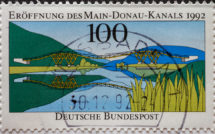

This is part of our special feature, Rethinking the Human in a Multispecies World.
Diary of a Young Naturalist brims with curiosity, heartache, and joy. Over the course of a year, Irish teenager and climate activist Dara McAnulty chronicles how the natural world both cushions him from the pains of early adulthood (he turns fifteen) and feeds his determination to protect it for future generations. McAnulty is also autistic, and the contrast between autism’s gifts—he is acutely intelligent, perceptive, and erudite—and its trials, especially the social insecurity that has made school life and interactions with strangers unbearable, is a thread that runs through the diary. So is the unwavering love and support he receives from his parents and two younger siblings (his mother, brother, and sister are autistic as well) and how their shared fascination for and delight in nature have helped the family weather life’s upheavals.
Each entry reads like a poem. McAnulty’s gift for language and his willingness to peel away layers of self-doubt and self-consciousness through his observations of the natural world are breathtaking. With equal fervor, he plumbs the sky, the trees outside his bedroom window, the family garden, local parks, his walks home from school, and family outings to northern Ireland’s forests, seaside, and nature preserves. Like all great nature writers, McAnulty understands how to weave together science and literature, mythology, history, and geography, and how to build intimacy with readers through his observations. On a walk through a local park in early May, for example, McAnulty notices that a large rhododendron where he and his siblings loved to play had been removed.
But this spring, amazingly, there are primroses bursting from below the stumps, visible for the first time in—I don’t know how many years. Then, in with the primroses, I spy a wood anemone, exposed to the air like a forgotten spell. The heavy rhododendron canopy has smothered the primrose and anemone alike, cast them in dormancy. Yet suddenly, here the anemone is, the blood of Adonis, the blood of the forest that once thrived here. A relic. A clue to an ancient murder. Evidence of the forest and bog that once covered all of Ireland… An anemone with so much mythology, so many stories, can now reach out again, open minds, touch lives in this century. (38-9)
McAnulty’s diary also chronicles his emotional and intellectual rites of passage from awkward, sometimes angry teenage schoolboy to budding scientist and increasingly assured political activist. He frequently expresses dread about entering the fray of public debate over environmental degradation, the loss of biodiversity, and climate change, recalling past incidents of bullying by classmates, or being patted on the head by well-meaning but overworked teachers. One of those turning points is a summer visit to a prominent ornithologist in Scotland to help his team track goshawks, an endangered species of raptor. Midway through the visit he marvels, “I feel at ease. This is so rare. They aren’t teasing or confusing me. I ask questions which are given detailed, intelligent answers and it feels as if I’ve been dipped in a golden light.” (71) As summer turns to autumn, McAnulty fortifies and reassures himself, “I have a journey to make… Sapling stage is ending, it is time to grow branches and mature.” (127) Later, as he organizes and leads an eco-group of interested classmates at a new school, attends a climate conference at Kew Gardens in London, and speaks at a Dublin demonstration, McAnulty has pushed through his anxieties about what role he might play in making change. Yet he presents his new mental toughness as something he must protect, as a fragile attribute, and one that costs a great deal of his physical and emotional energy. Like Greta Thunberg (he notes that they don’t know one another personally but follow each other on Twitter), he has found his public voice and is beginning to understand its power. In conclusion he writes, “We’re not separate from nature. We are nature. And without a community, when you’re always on your own, it’s more difficult to share ideas and to grow… My heart is opening. I’m ready.” It is impossible not to believe that he has found his calling.
Dara McAnulty’s profuse gifts as a storyteller and scientist have won him many accolades, but it is worth mentioning again how the support of the adults in his life, especially his parents, allowed him to flourish. One of the book’s crucial messages is that wonder for the natural world can be taught. Throughout the diary, McAnulty notes such instances, for example when his mother was in school, pupils were encouraged to gather items of interest for their schoolmates to appreciate. “She remembers collecting oak and sycamore leaves, pine cones, conkers. All the children would lay their finds on a nature table—I wonder how many schools have a nature table these days. I know mine doesn’t.” (39) He also recounts witnessing parents who discouraged their little ones from picking up treasures in the park or forest, dismissing them as “dirty.” (146) In one instance, after he watches a mother reprimand her son for picking up a conker (seed of a horse chestnut tree) in the forest, he rekindles the small boy’s interest in the “tiny globe of red-tinted light” after his mother returns to her cell phone: “I hope it gets to stay with him, if not in his pocket then in his memory.” (147) Moreover, McAnulty’s delighted description of watching a bucket in the garden filled with pond water become “a magic cauldron” underscores that appreciation for the natural world is open to everyone. He declares, “A spring evening spent watching life in a bucket on your doorstep is pure enchantment. Yes, it absolutely is!” (43) Diary of a Young Naturalistshows readers how to nurture curiosity, empathy, and respect for non-human life and how we can pass on to future generations joyous traditions of engagement with the natural world like those forged by the McAnulty family.
Elizabeth B. Jones is Professor Emerita of German and European history, Colorado State University. Her scholarship covers all aspects of rural Germany, with emphasis on the nineteenth and early twentieth centuries. She currently lives in Corvallis, Oregon and works with several community non-profits involved in social and environmental justice and looks after a small forest.
Diary of a Young Naturalist
By Dara McAnulty
Milkweed Editions
Hardcover / 224 / June 2021
ISBN 978-1-57131-180-1
Published on November 9, 2021




